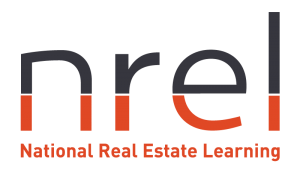What do Property Managers Actually Do?: A Comprehensive Breakdown
Property management is a vital and evolving profession within Australia’s real estate sector, encompassing a broad spectrum of responsibilities that ensure properties are both well-maintained and financially viable. If you’re intrigued by the role of a property manager or contemplating a career in this field, this guide offers an in-depth exploration of what property managers do and the steps to becoming one.
What Property Managers Do
Property managers serve as the crucial link between property owners and tenants, handling a variety of tasks to maintain property value and ensure tenant satisfaction.
1. Tenant Management
Screening Tenants: Property managers are responsible for evaluating potential tenants to ensure they meet the necessary criteria. Data from the National Association of Residential Property Managers (NARPM) reveals that about 15% of rental applications are denied due to issues like poor credit or criminal records.
Lease Agreements: Drafting clear and legally compliant lease agreements is essential. In Australia, the average lease term for residential properties is approximately 12 months, and property managers play a key role in outlining terms and conditions.
Rent Collection: Efficient rent collection is crucial, particularly in a tight rental market. In 2023, CoreLogic reported a national vacancy rate of 2.1%, emphasizing the importance of effective rent management.
2. Property Maintenance
Regular Inspections: Routine inspections are critical for identifying and addressing maintenance issues. The Australian Property Institute (API) notes that regular inspections can reduce maintenance costs by up to 20% by catching problems early.
Repairs and Upgrades: Overseeing repairs and property upgrades is a significant responsibility. The Australian Bureau of Statistics reported an average annual expenditure of about AUD 1,500 on maintenance and repairs for residential properties in 2024.
Emergency Handling: Property managers must manage emergencies efficiently. A Real Estate Institute of Australia (REIA) survey found that 30% of property managers handle emergency maintenance issues at least once a month.
3. Financial Management
Budgeting and Accounting: Property managers handle financial tasks, including budgeting. According to the Property Management Association of Australia (PMAA), property managers allocate roughly 15% of their time to financial management, ensuring accurate budgets and records.
Expense Management: Effective expense management is vital for profitability. Industry estimates suggest that the average annual operating cost for managing a property, including maintenance and administrative expenses, is around AUD 3,000.
4. Legal Compliance
Regulatory Adherence: Compliance with regulations is essential. The Australian Competition and Consumer Commission (ACCC) reported that about 5% of property managers faced legal challenges due to non-compliance in 2023.
Evictions: Handling evictions requires sensitivity and legal knowledge. The Residential Tenancies Authority (RTA) reported that around 4% of tenants faced eviction proceedings in 2023, highlighting the importance of navigating this process carefully.
How to Become a Property Manager
Entering the property management profession involves obtaining relevant qualifications, gaining experience, and developing key skills. Here’s a step-by-step guide, supported by relevant statistics:
1. Obtain Relevant Education and Qualifications
Educational Requirements: While a formal degree isn’t always necessary, many property managers possess qualifications in property management, real estate, or business. The Australian Government’s Job Outlook indicates that about 20% of property managers hold a diploma or higher in related fields.
Certifications: Depending on your location, specific certifications may be required. In Australia, obtaining a Certificate IV in Property Services is often necessary and enhances job prospects.
2. Gain Experience
Entry-Level Roles: Starting with entry-level positions such as a property assistant or leasing agent provides valuable experience. Approximately 10% of property managers begin their careers in these roles.
On-the-Job Training: Practical experience is crucial. Many property management roles involve on-the-job training, which is essential for developing necessary skills.
3. Develop Key Skills
Communication and Negotiation: Strong communication skills are vital. According to a survey by the Property Council of Australia, 85% of successful property managers cite communication and negotiation as key skills for managing tenant relationships and resolving disputes.
Organisational Skills: Effective organisation is critical for managing multiple properties and tasks. Approximately 90% of property management professionals consider organisational skills essential.
4. Obtain a Licence
Licensing Requirements: In many regions, a licence is required. For example, in New South Wales, property managers must hold a real estate licence issued by NSW Fair Trading. Licensing requirements can vary by state and territory.
5. Continue Professional Development
Ongoing Education: Keeping up with industry trends and regulations is important. The Australian Property Institute recommends continuous professional development to maintain current skills and knowledge.
Property management is a multifaceted profession that requires a blend of skills, knowledge, and practical experience. From managing tenant relations and maintaining properties to handling financial aspects and ensuring regulatory compliance, property managers are integral to the real estate industry. By understanding the responsibilities and following the outlined steps to enter the field, you can embark on a rewarding career in property management. Whether you’re just starting or aiming to advance your career, this guide provides a solid foundation for navigating the property management landscape.


